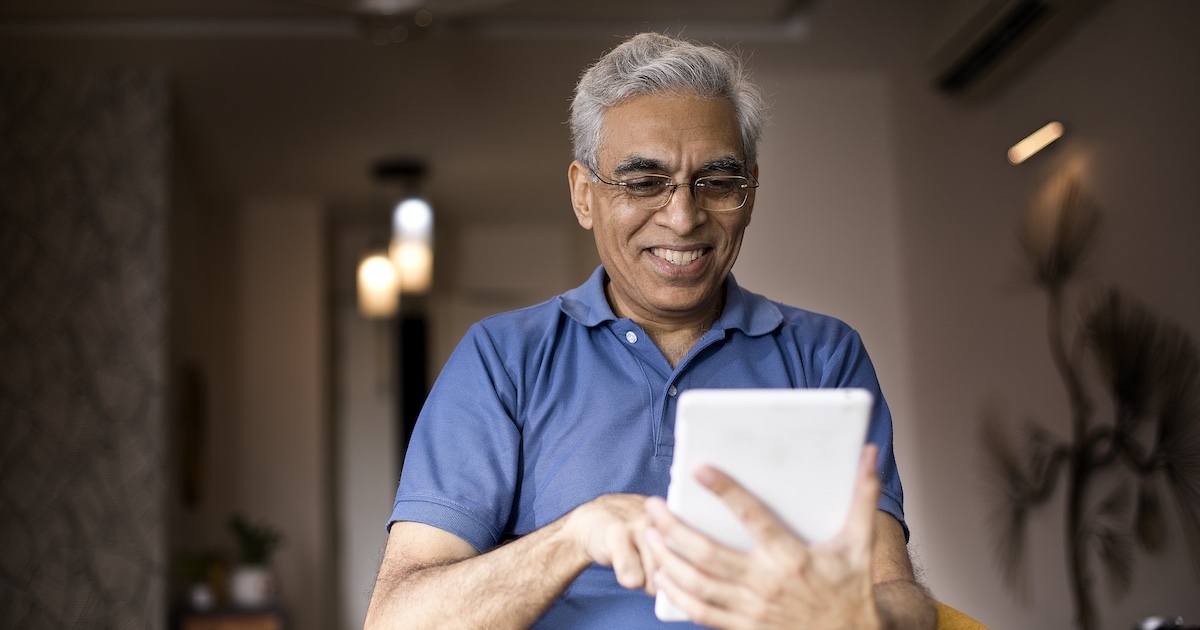 Indiegogo has kicked off the new year with a slew of new campaigns for health and fitness apps and devices. Last year, MobiHealthNews found an armband that measured workout intensity, a device that targets and estimates end times for blemishes on a user's skin, a sensor to measure the nutritional value of different food items, and an inactivity tracker, for those who just want to make sure they aren't sitting down too much.
Indiegogo has kicked off the new year with a slew of new campaigns for health and fitness apps and devices. Last year, MobiHealthNews found an armband that measured workout intensity, a device that targets and estimates end times for blemishes on a user's skin, a sensor to measure the nutritional value of different food items, and an inactivity tracker, for those who just want to make sure they aren't sitting down too much.
Of the five campaigns MobiHealthNews looked at in November, only one product made its goal -- Skulpt Aim. The company, which aims to measure a user's body fat percentage and muscle quality in individual muscles by pressing the device against the muscles, beat its $100,000 goal by $284,509.
This year is not without some near duplicates of existing digital health devices as well as a few entirely new ideas. Another wristworn activity tracker promises to take exercising to the next level, a tricorder, which is also in the X Prize competition, raises money to make their device cheap and available to anyone, and a spirometer connects users to information about their breathing.

To differentiate itself from other activity trackers in the market, Atlas claims that its wrist-worn, waterproof tracker can identify almost any exercise, using a 3D motion trajectory and specific motion fingerprints for different routines. According to the company, the device can even tell the difference between a triangle push-up and regular push-up, and different swimming strokes. The display on the user's wrist shows the type of exercises, speed at which the user is completing them and quality. If the user wants to do an unorthodox workout, Atlas will learn the movements through an analytics engine so that next time he or she exercises, the workout will be in the database.
The app also offers users training guidelines based on the work they have done at the gym so that if they've been focusing on one muscle group over another, the app will correct this. Finally, the app allows users to compare their form to other Atlas users in the community or challenge friends to competitions.
Through the campaign, users can get the device, a jersey and a pro membership to MapMyFitness or Fitocracy for $179.

Distributed Health Labs, based out of UC San Diego's division of the California Institute for Telecommunications and Information Technology, the Qualcomm Institute, launched a campaign to fund the creation of a sensor that can analyze a user's vitals through touch, and also identify diseases and environmental factors such as polution. The device, which was entered in Qualcomm's Tricorder X Prize, has two sensors, one is an "optical and electronic sensor" and the other is an "electrochemical sensor". Information from the device is sent to a companion app for reporting pollution and diseases, which is currently available in the iTunes app store.
After creating and individualizing the product, Distributed Health Labs hopes to share the information from the product with the global community, thereby extrapolating hyper-local information. The company's goal is to "enable a network of 1,000,000 citizen-sensors by 2017, starting with 1,000 devices and 10,000 apps deployed by 2015". Users can order a citizen-sensor on the website for $250, which will be shipped December 2014.

Qardio, a blood pressure and heart rate monitor, which debuted its device at CES, aims to not only be accurate, but also beautiful, so that it fits into the user's daily life. The company claims the device, QardioArm doesn't look like a blood pressure monitor, which means users can carry it around in their purse or pocket without drawing attention to it. QardioArm connects to a companion app where the information can be shared with family members or doctors. Just a few months behind QardioArm is the company's other device, Qardio Core, a wearable ECG belt.
The company has filed for clearances in the US and Europe and in the meantime has a manufacturing order of several thousand units, which will ship when regulatory clearance is secured. (Correction: Qardio wrote in that the first order is not for 1,000 units, as originally stated here, but rather "several thousand" units.) The company has also finished developments on the secure cloud and app. QardioArm costs $85 on the campaign page and the devices will be shipped once the clearances come through -- expected in March 2014.

H2's Health2Sync smart cable and app aim to help patients with diabetes better manage their health and disease. Once connected to the phone, users can see graphs, record diet notes in a diary or talk to friends and family members in personal support groups. The cord and app work with iPads and iPhones that have iOS 7 and connect to Johnson and Johnson, Bayer, Abbott, ReliOn, and Arkray glucometers. H2 says the Android cable and app will be available in May.
The cables cost $29 on the campaign website and estimated delivery is in March. Unlike Glooko's well-known cable offering, Health2Sync has not been FDA cleared.

FitCute, a weight scale, measures eight body statistics -- weight, body mass index, fat-lean ratio, water ratio, bone ratio, calorie, muscle ratio, and visceral fat ratio. The scale then uses Bluetooth to send the information to an app, which allows up to eight family members to make personal accounts. After analyzing the information, the app gives users suggestions to improve fitness or diet routines. All information can be shared over Facebook, Twitter, or email and the app is available on iOS or Android platforms.
Money from the campaign will be used for CE and FCC product certification, mass production, and software developing. For a limited time, the device is available for $27, and after those 100 are sold, the campaign will offer the device for $65.

Breethe, a spirometer that connects to a smart phone, provides a two-step solution for monitoring respiratory problems. The company reasons various circumstances make it important to manage respiratory diseases remotely and track changes that occur during environmental transitions or while exercising -- both could negatively or positively affect respiratory issues depending on the situation. The app stores this data and shows users trends over time.
Because the company's product is not FDA cleared, they do not offer it for preorder in the campaign. Instead, users can get their picture taken by one of the cofounders, an amateur photographer, or get a water bottle, towel or handwritten thank you note.

SenseGiz Star might not be as sleek as other competitors in the activity tracker space, but the device aims to add a few features that are not included in any other tracker. The device can be worn on the wrist or as a clip and also includes smartphone gesture controls and safety features, which the company believes sets it apart. With certain movements, users can reject calls, click photos, launch apps or control music. The safety features detect falls or crashes and activates a countdown timer to prevent false alarms before an alert is sent to designated friends or family. Parents can also use the device to make sure kids and pets stay inside a safe zone.
Users can purchase the device for $89 through the campaign, but it will likely retail for $120. SenseGiz Star comes in four colors: classy black, bubbly blue, ruddy red and flawless white.

Eva aims to help those who have served in the military handle their mental health in a safe way. The app offers a virtual space for individuals to stay connected to their counselors, share thoughts via text, picture, video, and audio journaling, and connect to the national suicide prevention line. The funding will support the design and execution of a randomized control trial of Eva, an extra layer of encryption to the server to become complaint with HIPAA regulations and protocol, an upgrade Eva's IT and network infrastructure, a way to encrypt the network connection on Android and iOS platforms and a reconstruction of the application to improve user experience.
For $10, those that fund the campaign can provide an inspirational text message, which users of the app will see when they open it. For $25, a picture of the funder with an inspirational sign will be seen by users when they press the "Code Red" button during moments of depression.

HealClick aims to find answers for patients with unidentified diseases. The website matches users with similar symptoms based on various commonalities, such as age, diagnoses, symptom severity, and treatment responses, in the hopes that they can help each other find a diagnosis to unidentifiable health problems. When the campaign first launched, the website had 1,000 members, and within 36 hours, another 354 signed up.
Another company, CrowdMed, which raised $1.1 million last year, uses predictive market models to diagnose people who are looking for answers to their diseases.

Largesse aims to bring a lot of connected technologies into one device. The patent pending device connects to a smartphone and captures vital signs, offers medication reminders, track medication usage, and enables users to pay refill prescriptions. For $50, users can buy the device and app, which is available on iOS and Android devices.


